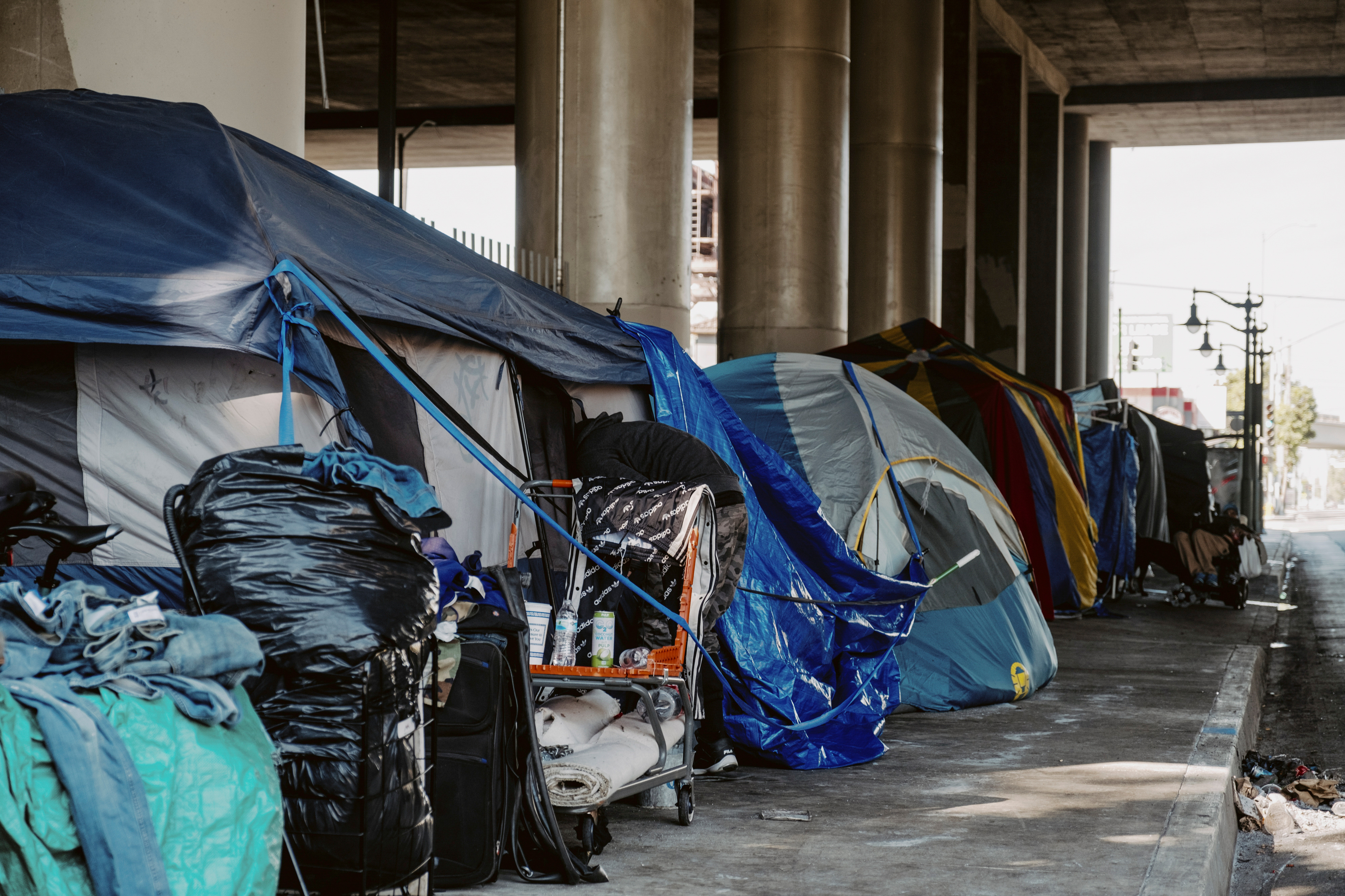A new mobile health clinic launched in the streets of Costa Mesa this month, marking the second city where the clinic is providing on-demand health services to those experiencing homelessness in Orange County.
The CalOptima Health Street Medicine Program offers health and social services to the unhoused population in a county where a total of 7,322 people are experiencing homelessness, according to the Point in Time count in May.
The program operates out of a van, which Alec Bradbury operates. He is a nurse practitioner with the Celebrating Life Community Health Center, which partners with CalOptima.
Get top local stories in Southern California delivered to you every morning. >Sign up for NBC LA's News Headlines newsletter.
“We make up the medical team in terms of the physical exams and treating the conditions they have,” he said of his colleagues, a licensed vocational nurse and a mental health professional. “We have wound care supplies, we have medications. We have procedural tools as well.”
On Wednesday, the program had been in its eighth day in Costa Mesa, where 300 people are homeless, according to county officials.
“We’ve had 10 different people so far, three of whom hadn’t had a primary care appointment in multiple decades,” said Bradbury. “One of them hadn’t had any medical appointments outside of E-R’s and jails.”
The program launched about 16 months ago in Garden Grove, where Caloptima said it helped those experiencing homelessness with the ultimate goal of getting them off the streets permanently.
“Since then, more than 315 unsheltered individuals have been served by this program,” said Yunkyung Kim, the chief operating officer for CalOptima. “We are proud that twelve of those individuals have been permanently housed.”
“In terms of the most chronically homeless in our community, we've got to get to them where they are,” said Supervisor Katrina Foley, who represents the county’s fifth district. “We need to develop the trust, and a program like the Street Medicine Program helps us to treat people on the streets, treat their ailments treat their health concerns”
Bradbury said, so far, most of the people he has approached have been open to getting help, which is why he says bringing services to the streets does work.
“We’ve had only a few people turn us away,” he said. “We’ve even had a few people turn us away and later that day sought us out and signed up for services.”



